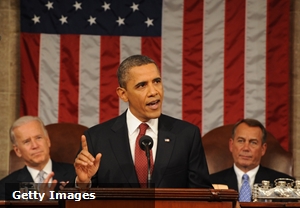After he was sworn in for the second time on Monday, President Barack Obama’s speech covered a lot of ground. He touched on everything from civil rights to global warming, but the military community may have been most interested in the plans he laid out for the Armed Forces as the United States brings a decade of war to a close. Although he hinted at a second term that will avoid any prolonged military conflict, he did say that the country should maintain a presence in all corners of the globe.
A shifting landscape
As he promised when he was first campaigning for president, Obama has overseen the end of the war in Iraq, and American forces are readying to be fully out of Afghanistan by 2014. Additionally, there has been talk about a more streamlined military as the Pentagon looks to cut its large budget. Despite the changes, Obama made sure to point out that the United States will still maintain its place in the geopolitical world, and support causes for freedom around the globe.
“America will remain the anchor of strong alliances in every corner of the globe; and we will renew those institutions that extend our capacity to manage crisis abroad, for no one has a greater stake in a peaceful world than its most powerful nation,” he told a crowd estimated to be at around 600,000 people. “We will support democracy from Asia to Africa; from the Americas to the Middle East, because our interests and our conscience compel us to act on behalf of those who long for freedom.”
Military may see new focus
The statements are similar to ones Obama has been making for much of the last year. In early 2012, he unveiled a new plan that would create a military more focused on abilities such as intelligence-gathering and special operations, reports USA Today. In the same press conference, he detailed plans to shift the efforts of the United States from the Middle East to Asia, where China and North Korea are playing a bigger role.
New strategy amid uncertainty
Though Obama has laid out detailed plans for the military, there are still concerns about funding. Most significantly, the threat of sequestration – across the board $500 billion budget cuts over 10 years – looms large over the decision-making of top military brass.

